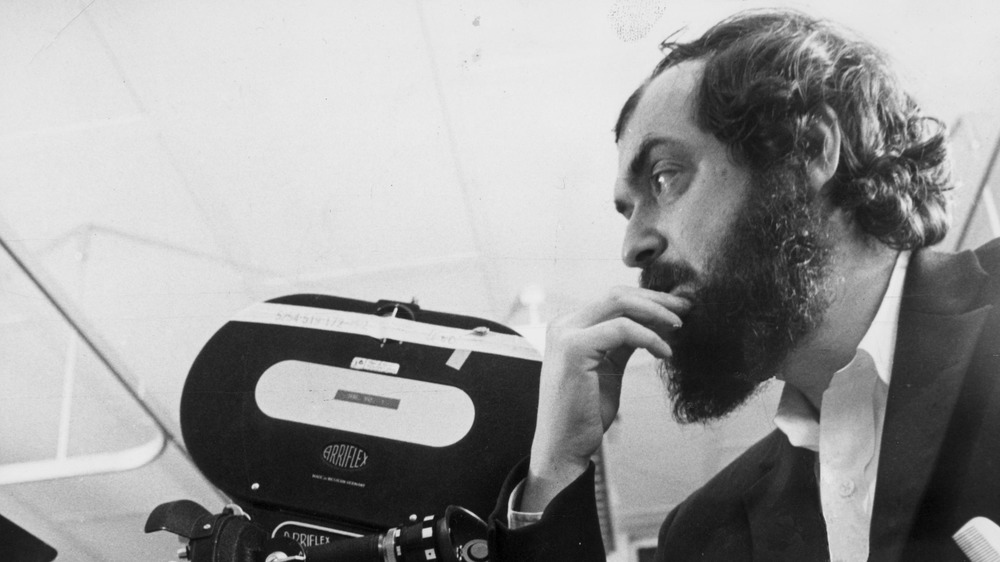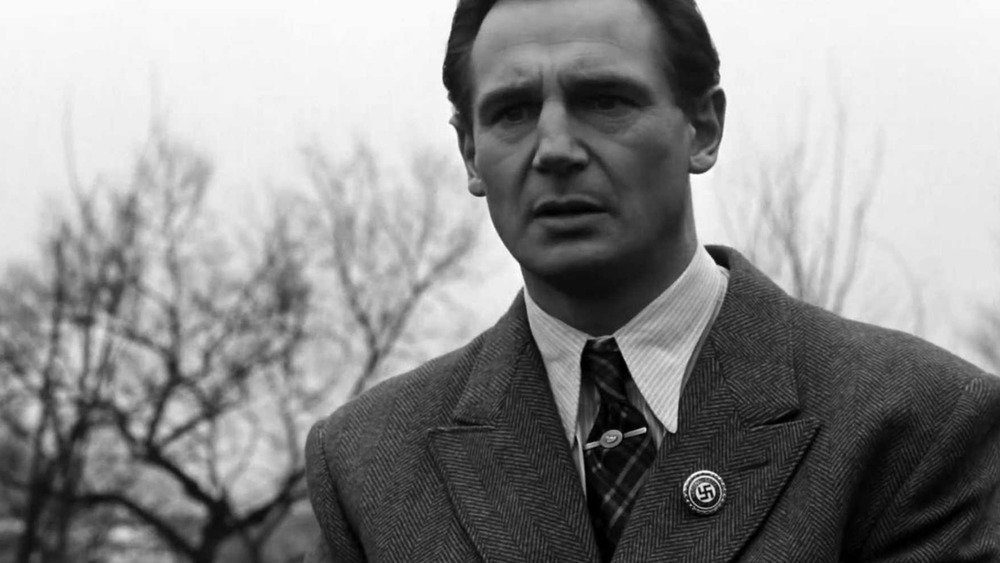What Stanley Kubrick's Comment About Schindler's List Really Meant
The Holocaust, which took place from 1941 to 1945, is one of the darkest moments in all of history. Roughly 11 million individuals, including over 6 million Jews, were unjustly murdered in Nazi concentration camp. Such a horrific event must never leave public consciousness, and recollection of it has to be thorough and accurate so as not to downplay the horrors of the time. Steven Spielberg's 1993 epic Schindler's List ranks among the most enduring Holocaust stories in cinema.
The movie stars Liam Neeson as Oskar Schindler — a born and raised German who has risen in the ranks of the Nazi Party. However, despite his status within the regime, he begins to realize how horrific its practices are and eventually contributes to the rescue of over 1,000 Jews by the time World War II concludes. Such a narrative is bleak and hopeful simultaneously, indicative of the compromise Spielberg made in creating a piece of media that served as both strong entertainment and a harrowing historical snapshot. Even though many applaud his handling of the Holocaust on the big screen, others, like Hollywood icon Stanley Kubrick, had far more critical comments for the blockbuster director.
Kubrick thought Schindler's List didn't handle the Holocaust properly
As discussed in a recent Reddit thread, Kubrick clearly had very strong feelings on how filmmakers should represent the Holocaust in film. Writer Frederic Raphael once recalled a discussion he had with the 2001: A Space Odyssey director, during which he claimed that Schindler's List represented the event accurately and completely. Kubrick, never one to mince words, responded "Think that's about the Holocaust? That was about success, wasn't it? The Holocaust is about 6 million people who get killed. Schindler's List is about 600 who don't."
Kubrick's critique certainly has some validity. The story centers around Schindler's turn from stalwart Nazi to a savior of thousands of those imprisoned and marked for death inside German concentration camps. As a result, the main focus is on the handful of people who were fortunate enough to survive, and, to Kubrick, this approach inadvertently downplays the millions more who never stood a chance. In that way, considering this movie a complete, accurate account of the Holocaust is harmfully reductionist.
With this in mind, it's not fair to say that Schindler's List is a bad film. In fact, it deserves its status as one of the greatest historical dramas of the modern era. At the same time, it's important to recognize that it is a product of Hollywood designed to entertain first and educate second, ensuring a satisfying ending that sends audiences home fulfilled.

